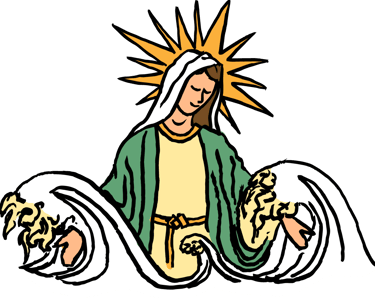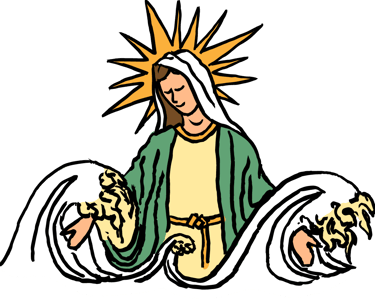Creative Writing Topic: The Absolute Absence of Something
Mary Cimbalista
12/19/20243 min read


I’ve been doing an online course on Dante’s Divine Comedy with a friend the last few weeks. (The online class is with Hillsdale College online. They have truly educational classic lessons, for free, for anyone who is interested.) I got to the point when Dante and his guide Virgil meet Satan in the very deepest of the nine circles of Hell—and everything is frozen. Not burning, as is a common depiction of Hell. Particular note was made that there was no sound of trickling water. Everything was still; there was no heat.
It made me think about the nature of Hell and evil: it is not so much a thing as it is a lack of something. It is the lack of God. How do we normally describe Hell? Burning, heat, sulfur, great pain. We can only describe something that we haven’t seen by comparing it to things we have experienced. Hell is not like anything we’ve experienced because we have only gone through earthly life. We’ve only experienced things that exist positively. Hell is the lack of good, the absence of things as we know them. Cold is a lack of heat. I imagine that Dante was speaking to the lack of goodness one would find in Hell. Hence, the anecdote that sounds associated with heat were absent. I might even propose that Dante could have well depicted Satan as infinitesimally small, because even greatness would be a source of pleasure for him. It would definitely seem like a fitting final suffering to reach Hell and find out that you’re not even granted the vanity of greatness in your evil.
I realized that to describe the total and absolute lack of something, even a sound that is morally neutral, is horrendous. To be permanently without the sound of trickling water with no hope of ever hearing it again is tragic. All things on earth were created by God and therefore have goodness. Some things are wholly good, like the Eucharist and the other sacraments. Some are good people who make decisions of varying goodness. And some are simply creation, items that don’t act per se, but are only acted upon. But in imagining the eternal absence of any of these things, I appreciate the goodness that is in it, even if I usually overlook it. I don’t often consider how happy I am that I can hear the sound of rain, or the faucet, or windshield wiper fluid.
We’re granted a lot of gifts in this life. If you find yourself unappreciative of anything or anyone, imagine yourself without it/him/her. Close your eyes and imagine enjoying it, with the knowledge that it is the last time you will ever do so. So you savor it. And then open your eyes and remember that, although you won’t forever, you still have that thing or that person in the present. Knowing that it isn’t gone yet, you can be there in that moment, relish it, ingrain it in your memory, allow it to bear whatever fruits it can, and give it back to God to bear more.
In writing this, I became aware of the different instances of trickling water around me, more than I would have ever really noticed in passing through life. It was a good exercise in awareness of the beauty around me, and now I find myself picking up the little things of life a bit more and savoring them. Life wouldn’t be full without them, and it’s a waste to let goodness exist without somehow engaging in it. So I recommend to you to create your own little exercise and describe in detail the absolute absence of something that you know is valuable in your life, but that you haven’t been appreciating enough. This is also a good idea to charge your student with—it serves not only as a writing and grammar exercise, but also as an opportunity to stretch one’s imagination with creative investigation into the hidden glory of everyday goods.
Painting by Attilio Roncaldier (1801-1884). Ravenna, Museo Dantesco (Photo by DeAgostini/Getty Images)
Guiding Your Child's Learning at Home
Downers Grove, IL




